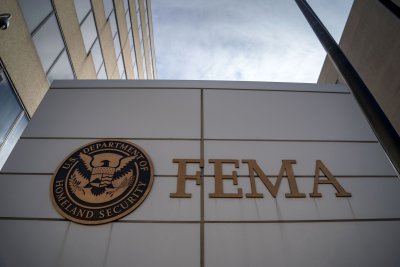Judge halts FEMA rule tying disaster funds to deportation data

Dec. 23 (UPI) — A judge in Oregon ruled Tuesday that the Trump administration cannot require states to account for how deportations have affected their populations in order to receive emergency or disaster preparedness funds.
U.S. Magistrate Judge Amy Potter’s ruling came in response to a lawsuit from 11 states challenging new requirements from the Federal Emergency Management Agency, which they argued created undue burdens on access to hundreds of millions of dollars that could be used to prepare for floods, storms, acts of terrorism and other potential catastrophes.
The ruling is a setback for President Donald Trump as he has sought to remake the federal agency that is central to responding to disasters after earlier calling for it to be dissolved.
The ruling concerned a new FEMA policy that shortened the duration of grants to states from three years to one. The agency argued that the shorter period would allow it to better gauge the effectiveness of how states were using the money.
FEMA also required states to provide updated figures on their populations to reflect the Trump administration’s aggressive deportation efforts. Population counts have traditionally been the responsibility of the U.S. Census Bureau.
A group of 11 states – including Michigan, Oregon, Arizona, Colorado, Hawaii, Maine, Maryland, Nevada, New Mexico, Wisconsin and Kentucky – sued in response to the new requirements.
They argued that the requirements violated the Administrative Procedures Act and imperiled funding used for outreach programs in Hawaii, the deployment of emergency management personnel in North Carolina during tropical storms and staff to respond to flash floods in Maryland.
“This abrupt change in policy is particularly harmful to local emergency management,” wrote Potter.
In Oregon, affected funds were used to help cover the expenses of local emergency managers across the state, she wrote.
